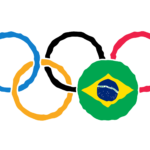The Islamic Republic of Iran requires by law that women wear an “Islamic hijab” (headcover), even if the women are not Muslim. When Iran hosts international women’s sports and game tournaments, it requires that all competitors, whether they are Muslim or not, wear an “Islamic hijab” both in public and in play. This is what I call “garment coercion”: requiring players to wear a religious garment—or a garment with a religious or political symbol—as a precondition for competing.
The problem of Iranian garment coercion came to public attention because high-level competitors in international women’s pistol shooting and chess refused to don the hijab. As a result, they were not allowed to attend tournaments in Iran. Participating in international tournaments is essential to advance in the highest levels of competition, but these women were willing to sacrifice that opportunity because they refused to be subject to Iran’s religious coercion.
Female Competitors Protest Iran’s Hijab Requirement
In 2013 and 2016, pistol shooter Heena Sidhu of India refused to compete in tournaments in Iran. Sidhu is a former world record holder, and in 2014 she won a gold medal at the International Shooting Sport Federation World Cup in ten-meter air pistol. Sudhu objected, “Forcing tourists or foreign guests to wear a hijab is not a sporting thing.”
Start your day with Public Discourse
Sign up and get our daily essays sent straight to your inbox.Sports are an area of public life characterized by merit-based competition. This centrality of merit is what keeps competitions focused on letting the best player or team win regardless of competitors’ differences outside of a match; but it is threatened by Iran’s insistence on women’s compliance with a religious requirement.
Other women have publicly objected to Iran’s policy as well. US chess star Nadia Paikidze refused to participate in the 2016 Women’s World Chess Championship in Iran because of the hijab requirement. Paikidze said her decision was meant to show solidarity with Iranian women who do not want to be forced to wear the garment in their day-to-day lives.
Former World Junior Girls Champion in chess Soumya Swaminathan, from India, refused to play at a tournament in Iran in 2018 over the religious headcover requirement. Swaminathan explained, “I do not wish to be forced to wear a scarf or burka,” and there is “no place for an enforceable religious dress code in sports.”
Ukrainian former Women’s World Chess Champion Maria Muzychuk also refused. She felt it was unfair to competitors to set a requirement for play that is unrelated to the game and deeply unacceptable to many, saying “It is so wrong that those chess players, who refuse to go to Iran and to wear the hijab, simply lose the right to participate in the Championship for no reason.”
A Religious Requirement
The Iranian requirement for women visiting the country to cover their heads is not a matter of requesting cultural sensitivity. Instead, it is an explicitly religious requirement. Iran began requiring women to cover their heads after the 1979 revolution, which established Iran as an Islamic Republic. First, in a speech in March 1979, Ayatollah Khomeini, leader of the revolution, declared that women should wear a “hijab.” Then, in 1983–84, Iran amended its “Islam penal code,” adding a requirement for women to don an “Islamic hijab.” This section of the legal code is religious, not civil, and the garment required is identified specifically as a religious, i.e. an “Islamic,” garment. Thus, the Iranian requirement for international competitors to comply is explicitly a religious requirement.
Iran is unusual, perhaps unique, in requiring visiting women to wear Islamic religious garb to compete. Other Muslim-majority countries that host women’s tournaments do not require visiting participants to wear an Islamic headcover. For example, when the United Arab Emirates hosted the fourth Arab Women Sports Tournament (AWST) in 2018, the Muslim and non-Muslim competitors alike were free to choose whether to compete in hijab. (It is unclear, however, whether Saudi Arabia would require visiting female competitors to comply with its requirement that women don an Islamic headcover.)
When Argentinian chess champion Carolina Luján refused to participate in the 2016 tournament in Iran, she understood that this was a matter of attempted religious coercion. “The obligatory use of the hijab is not just a simple dress code,” explained Luján. “It means a lot to me, and due to my beliefs and values I am not going to be forced into using it.” She added, “In my country . . . we do not force Muslims to remove their hijab. We respect their choice.”
In previous writing, I have defended the right of Muslim women who chose to cover their heads for religious reasons to be allowed, as a matter of religious freedom, to play sports wearing a headcover. I called this the “hijab hurdle in sports.”
It is ironic that Iran, of all countries, is trying to enforce a reverse-hijab-hurdle by banning female competitors who decline to wear an “Islamic hijab.” It was Iran’s women’s soccer team that experienced the bitter disappointment of being denied access to competition due to an attempt to force anti-religious secularist standards onto soccer. In 2011, Iran’s women’s soccer team withdrew from an Olympic qualifying match when a referee declined to allow them to play wearing the hijab. This incident led the international governing body of soccer, FIFA, to review its regulations, and in 2014 FIFA begin to allow religious garb (including turbans and kippahs) to be worn in soccer.
Iran Is Not the Only Country Engaging in Garment Coercion
It is good that now both non-religious and religious players are free to come to the pitch as they are. At the same time, FIFA appropriately bans “political, religious, or personal slogans, statements, or images” on uniforms; there should be no precondition that players wear religious garb or a religious or political symbol with which they disagree in order for them to be allowed to compete.
Sadly, however, FIFA does not enforce this regulation evenly. Recently, sports associations in both the United States and the Republic of Ireland have engaged in their own garment coercion. The U.S. Soccer Federation (in June 2017 and 2018), and the Football Association of Ireland (in June 2018), required national team players to wear a political symbol—namely, an LGBT rainbow—on national team uniforms as a precondition for being allowed to compete in international games. A Christian player on the U.S. Women’s National Team, Jaelene Hinkle, withdrew rather than be forced to wear a political symbol with which she disagreed. Her career has suffered as a result.
Until Iran changes its garment coercion requirement for women who visit to compete in international sports and game tournaments, international federations in all sports and games should bar Iran from hosting women’s tournaments.
Until Iran changes its garment coercion requirement for women who visit to compete in international sports and game tournaments, international federations in all sports and games should bar Iran from hosting women’s tournaments. Iranian Muslim women should be free to compete internationally in sports and games wearing an Islamic hijab if they so choose; and in reciprocal fairness, women visiting Iran for competitions should be allowed not to cover their heads if they so choose.
At the same time, the U.S. Soccer Federation needs to get its own house in order and stop making soccer players wear a political symbol or else be denied the opportunity to compete. FIFA should discipline the United States and the Republic of Ireland for requiring players to wear the LGBT rainbow symbol, just as FIFA has done in the past when teams have used other political symbols on uniforms. FIFA needs to act now so that this not become an issue during the upcoming Women’s World Cup, which starts in June 2019.
Sports and games are valuable as shared civic spaces where all, regardless of religion or the lack thereof, and regardless of political views, participate together and compete solely on merit. Shared civic spaces such as sports and games enrich society and foster human contact outside of our day-to-day social, religious, and political silos. We need to protect the shared nature of these fields of competition to ensure that international sports and games continue to be open to all without being co-opted as platforms for religious or political agendas.
Special thanks to Khashayar Khatiri for research assistance with this article.














